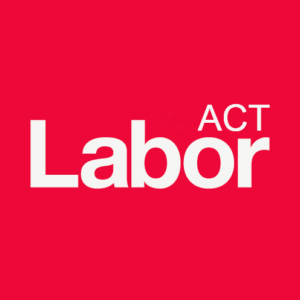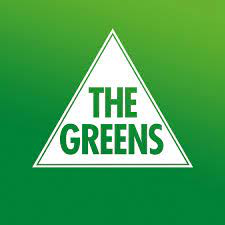Election Scorecard: Our Environment, Our Future
The Conservation Council works constructively with all elected representatives of ACT Legislative Assembly to ensure the delivery of strong environmental outcomes for the ACT and region.
We have rated policy announcements against our 2020 Election Priorities which were developed in consultation with Conservation Council member groups. Major parties are rated against our individual priorities (first table). Minor parties and independents have summary comments (further below).
The table will be updated as policies continue to be announced in the lead up to the final polling day on October 17th. You can get further information about the parties’ policies on their websites.
Party ratings
| Party has put forward a comprehensive policy response to address the priorities and is consistent with good environmental outcomes. | |
| Party has put forward good policies that partially address the priorities and are consistent with good environmental outcomes. | |
| Party has put forward limited policies to address the priorities and/or may include policies that run contrary to good environmental outcomes. | |
| Party has not put forward a policy to address the priorities and/or may have other policies that run contrary to good environmental outcomes. |
 |
 |
 |
|
| A SAFE CLIMATE | |||
| Net zero emissions by 2030 |
|
|
|
| No new gas connections |
|
|
|
| Cut government ties with fossil fuel companies |
|
|
|
| PROTECTING CANBERRA’S NATURAL ENVIRONMENT | |||
| Biodiversity funding |
|
|
|
| Protect all ACT land with conservation values |
|
|
|
| Canberra-wide cat containment by 2025 |
|
|
|
| A GREEN AND LIVEABLE CITY | |||
| Plant trees across Canberra to meet the 30% tree canopy target |
|
|
|
| CLEAN AND HEALTHY WATERWAYS | |||
| Improve water quality in Canberra’s major creeks and stormwater channels |
|
|
|
| A COMPACT CITY | |||
| No further urban expansion and an 80% infill target |
|
|
|
| SUSTAINABLE TRANSPORT | |||
| Network of separated city cycleways |
|
|
|
| Integrated, electrified and reliable light rail & bus network |
|
|
|
| Incentives for electric cars and bikes |
|
|
|
| VALUING RESOURCES | |||
| Improving waste management |
|
|
|
| No single use plastics by 2023 |
|
|
|
| Canberra-wide food and organic waste collection |
|
|
|
Other parties and independent candidates
Below is a brief analysis of environmental commitments from other parties and independents. For a full list of candidates, visit Elections ACT.
| Party/candidate | Our comments | Website |
| Animal Justice Party | The AJP support creating nature corridors to protect wildlife from road deaths, replacing barbed wire in wildlife habitats, introducing mobile watering stations for wildlife during drought conditions, instigating the use of trap, neuter, release, monitor programs for urban cat populations, dusk and dawn speed limits for roads surrounding reserves and improving the public transport system to enable greater access to parks/reserves. Some of these policies, such as trap, neuter and release of cats run the risk of impacting poorly on native wildlife. Policies on other sustainability issues are limited. | website |
| Australian Climate Change Justice Party | The ACCJP advocate establishing a comprehensive, high speed bus system to and from each town centre; enhancing local bicycle track networks and electric bicycle lanes; immediate establishment of infrastructure for balanced energy supply to the ACT residential and commercial sectors; and growth of suburban community gardens. | website |
| Australian Federation Party | No specific environment positions or policies. | website |
| Belco Party | The Belco Party advocate for all current and future bus and light rail to be free of charge and would fund $50m to “clean-up our suburbs” including conduct a full street tree audit and inspect/maintain each street tree every year and plant missing trees. They have policies that promote the use of private vehicles eg lowering car registration and removing paid parking on weekends and after 5.30pm. They propose to open the ACT’s lakes to recreational use by motor boats, likely impacting on biodiversity and habitats. They have an unclear on position on light rail extension, but do want to delay Stage 2 to Woden. | website |
| Canberra Progressives | Canberra Progressives advocate implementing an urban growth boundary to prevent urban sprawl, exploring incentives to purchase electric cars and incentivise electric bike use, providing more community gardens, implementing a greening program for urban buildings and open space, incentives for developers to provide green roofs/walls, using rainwater and recycled water to water urban forest, ensuring all new ACT public housing is eco-friendly and renewably powered, light rail to Woden and further, co-funding a bio-plastic production plant to reduce plastic pollution and co-funding a recycling plant to re-purpose plastic and other waste. | website |
| David Pollard (Independent) | David Pollard advocates seeking funding support to help industries transition to more sustainable practices, both environmentally and financially, directing the public service to aim for carbon neutral or carbon negative on all public infrastructure, insisting on renewable energy reporting in Canberra, establishing a “Bike to Work” program with Pedal Power ACT, and a comprehensive condition assessment of the entire ACT path network and a rolling maintenance program. | website |
| Democratic Labour Party | Policies are at national level. No mention of climate change, biodiversity, ACT’s environmental values. Mention of moratorium on Murray-Darling Plan. | website |
| Fiona Carrick (Independent) | Fiona Carrick advocates for protecting our urban nature reserves and native wildlife; identifying urban green spaces for parks, public spaces and environmental corridors; protecting Coombs Peninsula; maintaining our tree canopy and streetscapes with climate-resilient species; naturalising and planting creeks/wetlands for biodiversity and recreation where possible; support for community groups and greening projects, eg care groups and community gardens; an overarching landscape strategy to manage connectivity between all elements including the tree canopy and biodiversity in our nature reserves, urban parks and creeks, drawing on the recommendations in the Inquiry into Nature in our City; and zoning for a 500 metre environmental corridor along Yarralumla Creek for the purposes of conservation, biodiversity and recreation at North Curtin horse paddocks. | website |
| Liberal Democratic Party | The Liberal Democratic Party advocate neither for nor against light rail in the ACT in principle, promote increased carparks in town centres as a matter of priority, support reduced hours for school speed limits where appropriate, support reduced vehicle registration fees, and do not believe that Canberra has a high car dependency. Will immediately work with outdoor enthusiast groups to unlock the ACT’s National Parks. No policies that mention protection of biodiversity or natural ecosystems. | website |
| Shooters, Fishers and Farmers Party | The Shooters, Fishers and Farmers Party does not have any ACT-specific policies, however, they believe in the right to hunt and gather, and have positions that support opening up national parks and reserve areas so that this can happen. In NSW they have opposed recent koala protection laws, and support the development of mineral resources including the ongoing extraction, domestic use and export of coal. They believe that coal-fired power is required to provide a reliable energy source. They are opposed to a price on carbon, and support nuclear energy. | website |
| Sustainable Australia | Sustainable Australia advocate to increase environment and conservation management funding and employment, including for water security, biodiversity and climate change, and increased investment into renewable energy technologies; and adopting a properly enforced national biodiversity and native species program including reduction and eradication programs for high-risk feral species. They also support policies to stop population growth locally and globally. | website |
| The Community Action Party | The Community Action Party advocates for a massive tree planting program to replace the tree cover lost; improve the control of noxious plants and feral animals in the ACT; informal green spaces being preserved and the Canberra Nature Park being extended to form a single, integrated entity. They want an independent commission to review water supply and demand management options; will work with communities to identify and implement ways of reducing the ACT’s ecological footprint; will work with communities, scientists, businesses and others to achieve the goal of creating a carbon-neutral ACT economy by 2035, or sooner if possible; a program to assist ACT business to reduce the amount of waste going to landfill from that sector; and increasing the level of recycling by households that are part of multi-unit developments. | website |




